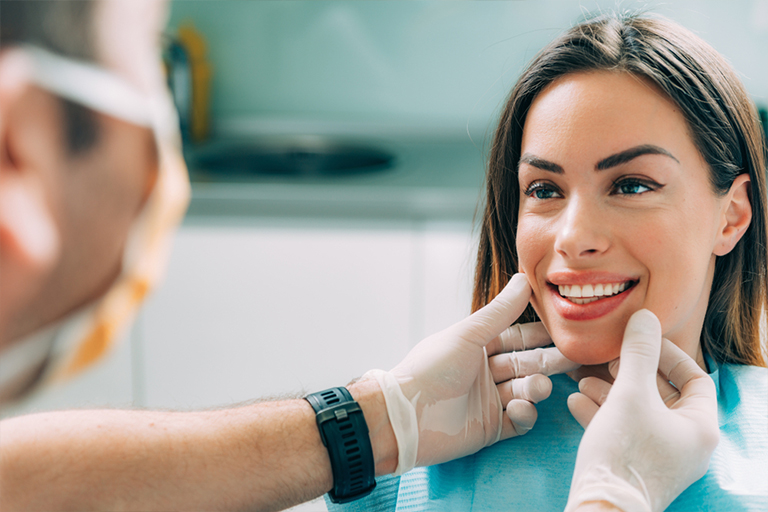

In the course of a normal day, many accidents could happen, a child could fall and break a tooth, a teenager could get into a fight and risk his smile, or you could drink your coffee and not notice how it would turn your beautiful white smile into a more brownish shade. All this is naturally followed by a visit to the dentist, to ask him the best solution to your problem.
Fortunately, these problems could be solved by a cosmetic procedure, such as veneers and crowns. Veneers and crowns are dental restoration methods that are commonly used to create a more beautiful and perfect smile. Veneers and crowns may seem similar, but they are two different procedures, they have different uses, materials, advantages and disadvantages, and much more to know. Keep reading this blog to learn more.
Veneers are thin, custom-made shells of tooth-colored material used to cover the front surface of the teeth. These shells are glued to the front of the teeth to change their color, size, length and overall appearance.
Veneers can be made from porcelain or swollen composite materials, porcelain veneers are more similar to natural teeth with their light reflecting properties, they are also considered better than stain resistant raised composites. There are many problems that could be solved by applying veneers, such as:
Getting veneers usually takes three dental appointments as follows:
You will inform the dentist of your problem and your goals, then the dentist will examine your teeth to see if veneers are the right solution for you, discuss the procedure and the dentist may request an x-ray if necessary.
Your dentist will prepare the surface of your teeth by reshaping your teeth, after which the dentist will make a model of your teeth and send it to the dental laboratory, which will make your veneers.
Your dentist will examine how the veneer will fit before cementing it to your teeth, after which your teeth will be cleaned, polished and etched to allow the veneer to be firmly attached to your teeth. The final step will be to remove any excess cement and check your bite and make sure nothing needs to be adjusted.
A dental crown is a tooth-shaped cap placed over the entire tooth to restore its size, shape, strength and appearance. When crowns are cemented, they cover the entire visible surface of the tooth. Crowns can be made from many different materials, such as stainless steel, metals, metal-ceramic, all-resin, all-ceramic and all-porcelain. The crowns can be used in many situations, such as:
The procedure for crowns usually requires two dental appointments as follows:
Your dentist will order x-rays and examine your teeth to make sure nothing needs repair, after which your dentist will reshape your teeth and make an impression of the teeth to receive the crowns. The impressions will be sent to the dental laboratory where the crowns will be made.
Your dentist will remove the temporary crowns and check the size and color of the new crowns, after which your dentist will numb the teeth and the permanent crowns will be cemented into place.
Onlays, or partial dental crowns, are a new generation of crown procedures that partially cover the tooth. 3\4 crowns cover 75% of the tooth surface. These types of crowns are made from the same materials as traditional crowns. Onlays and 3\4 crowns are usually used when your teeth are healthy, firm and strong enough, their best advantage is that a small amount of cutting is required, so that more of your natural teeth remain.
There are other types of partial crowns, such as seven-eighths crowns that cover most of the entire surface of the tooth, half crowns that are similar to three-quarter crowns, but the distal wall of the tooth is preserved, and conservative crowns that cover the outer surface of the tooth and are generally used for aesthetic purposes such as giving lighter shades to heavily stained teeth and covering the spaces between the teeth.
There are certain questions you need to know about veneers and crowns, and only your dentist can provide you with good and correct answers, these answers may differ depending on your case and the requirements of your condition, and your financial situation. Here are some questions to ask your dentist before undergoing veneer and crown procedures:
Veneers and crowns can improve your smile and solve certain problems, but what you need to consider is that both procedures are expensive and the differences between veneers and crowns. We recommend that you explore your options and think about it before embarking on such a procedure, and you can always ask your dentist for more information about your situation.
A beautiful smile could improve your self-image, your overall appearance and your oral health, but there are a lot of questions that could be raised here. So think about veneers and crowns, if you think that’s the solution for you, but most importantly stay happy and healthy.

La clinique dentaire Roccabella est heureuse de vous accueillir au centre-ville de Montréal. Les membres de notre équipe feront tout en leur mesure pour vous faire vivre un expérience agréable et confortable.
Lundi / 8:00 à 17:00
Mardi /8:00 à 17:00
Mercredi / 8:00 à 16:00
Jeudi / 9:00 à 17:00
Vendredi / 8:00 à 16h00